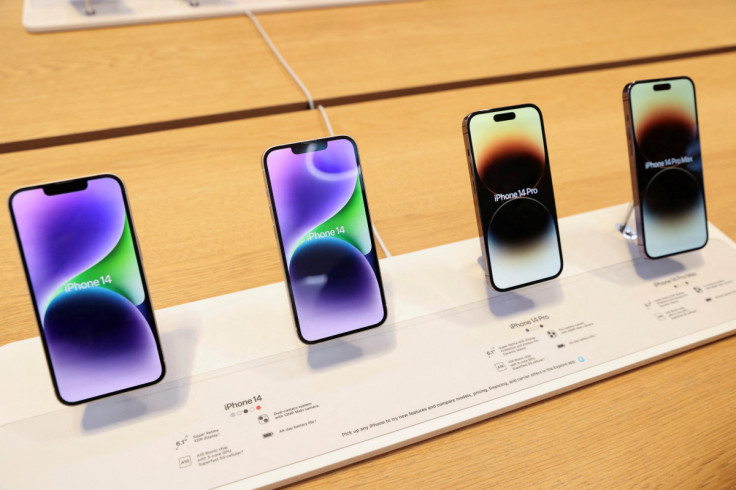Apple moves iPhone production to India to reduce reliance on China
Apple believes that making the next iPhone in India will help make the handset more affordable for Indian consumers.

Apple is reportedly sparing no effort to reduce its reliance on China in terms of manufacturing iPhones. In line with this, the American tech behemoth moved the iPhone 15 production to India.
Apple is on the verge of taking the wraps off the long-rumoured iPhone 15 series. The next-generation iPhone is expected to bring a myriad of major improvements over the existing iPhone 14 lineup.
For instance, Apple is reportedly planning to update the call interface on upcoming iPhones that run iOS 17. While nothing is set in stone yet, the purported iPhone 15 has been subject to a lot of leaks lately. Also, the impending iPhone 14 series successors have been floating around the rumour mill.
According to what is reported by my source iPhone 15 Ultra will have 2 front cameras, USB-C and will start from 256GB. iPhone 15 Pro instead will always start from 128GB and will have USB-C but only 1 front camera #iphone #iphone15 #iphone15ultra pic.twitter.com/lIn6OhMNko
— Majin Bu (@MajinBuOfficial) September 26, 2022
According to a report by GizmoChina, tipster Majin Bu shared some official-looking images that give us a glimpse into the iPhone 15 series' charging components. The image showcases the upcoming handset's USB-C with a new chipset labeled "3LD3 chip."
Apple's 'Make in India' push: Why is it important?
To those unaware, the Cupertino-based tech giant is producing the iPhone 15 series in India. In fact, Apple's top supplier, Foxconn has started production of the 2023 iPhones in India. According to a Bloomberg report, this is part of Apple's strategy to minimise its reliance on China.
India is slowly transforming into one of the world's major tech hubs. Unsurprisingly, leading brands compete fiercely to sell more products in the country, while trying to outperform their rivals. Some companies do not even shy away from setting up India-focused sub-brands like Poco and Realme in a bid to dominate the booming Indian market.
'Make in India' will spur positivity & inspire confidence among manufacturers. My thanks to all those who joined the programme today.
— Narendra Modi (@narendramodi) September 25, 2014
In 2014, India's Prime Minister Narendra Modi introduced the "Make in India" plan. At the time, only 19 per cent of phones used in India were made in the country. However, a whopping 98 per cent of the phones used in India were made locally by 2022, according to data shared by TechWire Asia. Now, a considerable number of companies including Foxconn are manufacturing locally in the region.
BIG BREAKING ⚡⚡#Apple Supplier Foxconn has started manufacturing of #iPhone15 at it's Plant in Sriperumbudur, Tamil Nadu 🇮🇳
— Vivek Singh (@VivekSi85847001) August 16, 2023
Iphone 15 is not launched yet & will be launch in 2nd week of Sep 2023. This show Apple trust on #India & its future
(CNBC-18) pic.twitter.com/s7KJ4uAimQ
Foxconn began iPhone 15 production in China back in June. However, Apple doesn't want to depend only on China for production. The company has been leaving no stone unturned in its endeavor to diversify its supply chain amid the growing tensions between the US and China.
While depending on just one manufacturer can save costs, it can cause major problems in the supply chain as we saw during the coronavirus pandemic. Aside from this, Apple hopes that making the iPhone 15 in India will help bring down the steep price it usually carries, at least for consumers in the country.
Notably, India is one of the world's biggest smartphone markets. However, most people usually choose more affordable and mid-range phones due to their economic situation. If Apple manages to reduce costs by producing locally and avoiding some taxes, the company will be able to offer better prices and reach more people. In other words, Apple will be able to increase its market share by producing locally.
The iPhone 15 has reportedly entered the production stage in Sriperumbudur, Tamil Nadu (India). The Foxconn factory in Sriperumbudur is one of the world's biggest electronics manufacturing plants, employing thousands of people. Furthermore, the factory boasts various state-of-the-art manufacturing facilities. It can produce a myriad of products like smartphones, laptops, and tablets.
Apple iPhone 15 series: What to expect?
The word on the street is that the iPhone 15 series will make its debut on September 12. Despite the lack of official confirmation, the iPhone 15 is expected to pack an upgraded UWB chip for enhanced Apple Vision Pro integration.
Coming soon…😍
— Prakash Tapaniya (@PrakashTapaniya) August 10, 2023
Who is very excited for iPhone 15 series? 🚀📱#iPhone15 #iphone15pro #Apple pic.twitter.com/CuMYQrP5hD
The Pro models could come with an improved processor, while the entire iPhone 15 lineup will house a radically overhauled camera system. Overall, Apple is hoping that the new iPhone will help to revive its reducing sales.
© Copyright IBTimes 2025. All rights reserved.






















